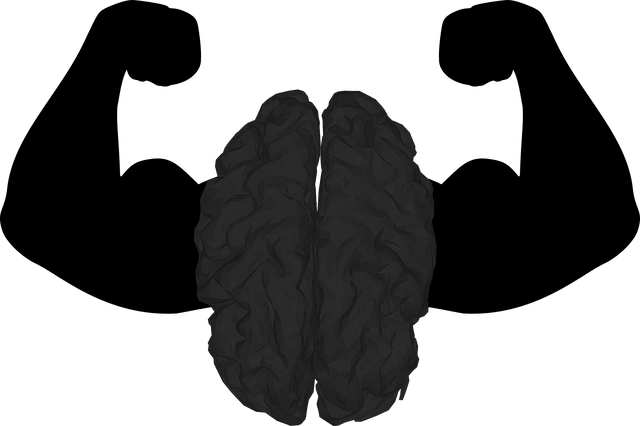Crafting effective meal plans for holistic wellness involves understanding individual needs shaped by age, gender, activity levels, health conditions, and emotional states. Balanced meal planning integrates physical health, mental well-being, and emotional stability through stress management (mindfulness, yoga), self-care habits (sleep), and tailored nutrition & diet plans, alongside fitness programs for overall wellness and improved living.
“Uncover the secrets to crafting balanced meal plans that fuel your body and mind. In this comprehensive guide, we delve into the holistic approach to wellness, focusing on aligning your meals with your unique needs. Learn how to understand your body’s signals, integrate mindfulness practices like yoga, and design nutrition strategies that balance macronutrients while ensuring a diverse diet.
Explore the connection between fitness, sleep, and self-care habits for a holistic health program tailored to your lifestyle. Discover stress management techniques and emotional balance tips to make healthier food choices effortless.”
- Understanding Your Body's Needs: The Foundation of Balanced Meal Plans
- – Identifying individual nutritional requirements
- – Factors influencing dietary needs (age, activity level, health conditions)
- Holistic Approach to Wellness: Integrating Mind and Body
Understanding Your Body's Needs: The Foundation of Balanced Meal Plans

Understanding your body’s needs is the foundation for crafting effective balanced meal plans. It involves tuning into both physical and emotional cues. Just as nutrition and diet play a vital role in overall wellness, so does mindful eating. Incorporate stress management strategies like mindfulness practices or yoga routines to alleviate tension that can disrupt healthy food choices. Additionally, prioritize sleep wellness tips, as adequate rest is essential for hormone regulation, which directly impacts appetite and metabolism.
Holistic health programs go beyond fitness and exercise programs; they encompass self-care habits tailored to your unique needs. This might include exploring different nutrition and diet plans to discover what nourishes your body best while also supporting emotional balance. Remember, creating a balanced meal plan is not just about what you eat but also how and when you eat it.
– Identifying individual nutritional requirements

Creating a balanced meal plan is a holistic approach to wellness plans for healthier living. It involves understanding and catering to individual nutritional requirements. Every person has unique dietary needs shaped by factors like age, gender, activity levels, health conditions, and emotional states. For instance, stress management strategies and mindfulness practices play a significant role in diet; high-stress individuals might benefit from foods that support calmness, such as those rich in omega-3 fatty acids or magnesium. Similarly, incorporating yoga routines into your daily regimen can enhance digestion and nutrient absorption, complementing nutrition and diet plans.
To achieve balance, consider integrating fitness and exercise programs tailored to your capabilities. Regular physical activity not only supports overall health but also strengthens the body’s ability to process and utilize nutrients efficiently. Self-care habits like adequate sleep wellness tips are equally crucial. Emotional balance is another pillar; nurturing your mind through practices like meditation or journaling can positively influence your food choices and overall nutritional intake.
– Factors influencing dietary needs (age, activity level, health conditions)

Creating balanced meal plans involves tailoring your dietary approach to meet individual needs, encompassing a holistic view of wellness. Age is a significant factor; younger individuals may require more energy and protein for growth while older adults might need more calcium and vitamin D for bone health. Activity level plays a crucial role too; athletes or those with active lifestyles demand higher calorie intake and specific macronutrient ratios to fuel their bodies. Additionally, health conditions such as diabetes, heart disease, or food allergies dictate dietary choices, necessitating tailored nutrition plans.
Beyond physical health, emotional balance and stress management strategies are integral to holistic health programs. Mindfulness practices, like meditation or yoga routines, can influence meal timing and content, promoting mindful eating habits. Incorporating self-care habits, such as adequate sleep wellness tips, further enhances overall wellness, ensuring that dietary needs align with mental and physical well-being.
Holistic Approach to Wellness: Integrating Mind and Body

Creating a balanced meal plan isn’t just about what you eat; it’s about cultivating a holistic approach to wellness that integrates mind and body. This means acknowledging the interconnectedness of physical health, mental well-being, and emotional stability. Start by incorporating stress management strategies like mindfulness practices or yoga routines into your daily routine. These activities can help reduce tension, improve focus, and enhance overall sense of calm.
Additionally, consider the role of nutrition and diet plans in supporting your holistic health programs. Choose whole foods rich in vitamins, minerals, and antioxidants to fuel your body optimally. Engage in regular fitness and exercise programs tailored to your individual needs and abilities. And don’t underestimate the power of self-care habits like adequate sleep wellness tips. Prioritizing rest and recovery allows your body and mind to rejuvenate, fostering emotional balance that underpins a truly balanced lifestyle.
Crafting balanced meal plans is a powerful tool for achieving holistic health and well-being. By understanding your body’s unique needs and adopting stress management strategies like mindfulness practices and yoga routines, you can create nutritious diet plans that fuel your fitness and exercise programs. Incorporating self-care habits, sleep wellness tips, and emotional balance techniques ensures a comprehensive approach to wellness plans for healthier living. Remember, balanced meal plans are not one-size-fits-all; they are tailored to individual needs, considering factors like age, activity levels, and health conditions. Embrace these expert tips to design sustainable nutrition and diet plans that support your journey towards optimal holistic health.
